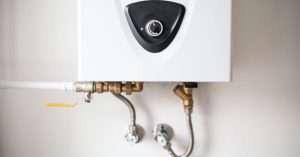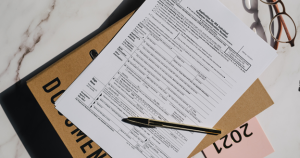Is a Copier the Same as a Printer? Key Differences You Should Know
Wondering is a copier the same as a printer? We explain the real differences, when to choose one over the other, and what’s best for your office needs.
You walk into an office supply store, see rows of machines, and think —
“Is a copier the same as a printer? Aren’t they basically twins?”
It’s a fair question.
They both have paper trays.
They both beep when they jam.
And somehow, they both break down when you need them most.
But under the hood, they’re pretty different beasts.
And picking the wrong one for your home office, business, or growing company can seriously mess with your workflow, budget, and sanity.
Let’s break it down, so you can finally know what you’re actually buying (or leasing).
Quick Answer: No, a Copier and a Printer Are Not the Same
Here’s the bottom line:
- Printers are mostly designed to print documents from your computer.
- Copiers are built to duplicate existing documents quickly and in high volumes.
Now, today’s machines sometimes do both.
But knowing which job you do more — printing or copying — can save you money, time, and maintenance headaches.
What Exactly Is a Printer?
Printer = digital file → paper.
Simple.
You send a file (a doc, a photo, a spreadsheet) from your laptop or phone to the printer. It spits it out.
Common types you’ve probably seen:
- Inkjet printers: Perfect for colorful prints at home.
- Laser printers: Office workhorses, fast and clean for text documents.
- All-in-one printers: Print + scan + basic copying (but copying isn’t the star feature).
If you’re mainly creating new documents from digital files, a printer is usually enough.

What Exactly Is a Copier?
Copier = physical document → dozens (or hundreds) of copies.
Fast. Efficient. No computer needed.
You put a document on the glass, press start, and it churns out identical copies.
Modern copiers have morphed into mini-office powerhouses:
- Copy
- Scan
- Fax
- Staple
- Hole punch
- Collate
- Booklet-making
They’re built to survive brutal, non-stop use — think schools, hospitals, legal offices — places where 5,000 copies a week isn’t even considered “busy.”
Why the Confusion?
Technology blurred the lines.
Today, MFPs (Multi-Function Printers) combine copying, printing, scanning, and faxing into one machine.
BUT —
MFPs are still more printer-focused.
Real commercial copiers are copy-focused, with higher duty cycles and better long-term reliability.
Translation:
- If you mainly copy giant piles of stuff every week, you need a copier.
- If you mostly print out invoices and occasional handouts, a printer will do.
A Marketing Agency Mishap
One of my old clients, a marketing agency, thought their fancy $400 all-in-one printer would handle a 500-page proposal print run.
It made it through 50 pages before it jammed.
Twice.
Toner exploded inside.
By page 100, they were sending interns to Staples to print manually.
Lesson learned.
The next day, they called me for advice.
I helped them buy commercial copier gear built for heavy lifting.
The difference?
Print jobs finished in minutes instead of hours.
No more emergency toner runs.
No broken printers during client deadlines.
Moral of the story:
Don’t expect a household printer to act like a workhorse.
Copier vs. Printer: Full Breakdown
| Feature | Copier | Printer |
| Main Job | Duplicate existing documents | Print new documents from digital files |
| Speed | Faster for large volumes | Good for small to medium jobs |
| Volume Capacity | Extremely high (ideal for 1000s of pages) | Moderate (often 250–500 pages/day max) |
| Cost Efficiency | Better long-term for heavy users | Cheaper upfront, more expensive per page |
| Extra Features | Stapling, sorting, collating, fax, scan | Sometimes scan/fax, limited heavy-duty features |
| Lifespan | 5–10 years with service plans | 2–4 years for heavy use |
| Best For | Offices, schools, hospitals, legal firms | Homes, small offices, freelancers |
When to Choose a Copier
You should consider investing in a copier if:
- You print more than 2000 pages per month.
- You regularly copy multi-page documents.
- You need finishing options (like stapling or hole punching).
- You want scanning and emailing built-in.
- You want a machine that can handle multiple users without constant downtime.
Examples of businesses that need real copiers:
- Law firms
- Accounting offices
- Schools
- Medical clinics
- Construction companies (printing blueprints)
When a Printer Is Enough
- A printer is the better choice if:
- You mainly print digital files, not copy physical papers.
- You’re a small office with only a few employees.
- You print less than 1000 pages per month.
- You don’t need fancy features like automatic stapling.
- You’re tight on space and need a compact machine.
Ideal for:
- Freelancers
- Startups
- Remote workers
- Home offices
Leasing vs. Buying
Here’s the kicker:
Copiers are expensive upfront ($3,000–$15,000).
Good printers cost much less ($150–$600 for basic ones).
Many businesses lease copiers to avoid big cash outlays.
Leases often include maintenance, toner, and repair services, handy if you don’t want unexpected repair bills popping up.
When you buy commercial copier equipment outright, you skip monthly payments but take on service costs yourself.
Hidden Costs People Miss
Before you rush out and grab the cheapest deal, watch out for:
- Toner and Ink Costs: Some printers burn through ink cartridges like crazy. Toner is cheaper long term.
- Service Contracts: Copiers usually need regular maintenance — budget for it.
- Parts and Repairs: Office printers are basically disposable after a big failure. Copiers? Not so much. They’re repairable if you pick the right model.

Pro Tips Before You Decide
1. Know your monthly page volume.
Don’t guess. Check your current usage if you can.
2. Think about future growth.
If you’re expanding, a cheap printer might not keep up six months from now.
3. Compare service warranties.
A $5K copier with no service plan is a risk. A lease with full service coverage? Smart.
4. Visit a showroom if possible.
Touch the machines. Test the speed. See the real quality.
FAQs About Copiers vs Printers
Q: Can I just use my printer to make copies?
A:
Sure, small jobs — like copying a recipe or two — are fine.
But bulk copying? You’ll kill your printer fast.
Q: Are copiers harder to use?
A:
Not really. Once you get trained (takes like 5 minutes), they’re usually easier for big jobs than a printer.
Q: Why are copiers so expensive?
A:
They’re built like tanks. High-capacity motors, industrial-grade rollers, faster processors — they’re designed to run all day, every day.
Q: Is it smarter to lease or buy?
A:
If cash flow is tight or you want automatic service coverage, lease.
If you have the budget and want total ownership, buy commercial copier setups and save over time.
Final Take: Copier vs. Printer — Know What You’re Buying
When people ask “is a copier the same as a printer?”
I tell them:
It’s like asking if a pickup truck is the same as a sports car.
Both get you places.
But depending on what you’re carrying, you’ll be really happy you picked the right one.
Here’s the cheat sheet:
- Lots of fast, bulk copying = Get a copier.
- Light to moderate printing = Stick with a printer.
Choose wisely, and your future self (and your whole team) will thank you.













